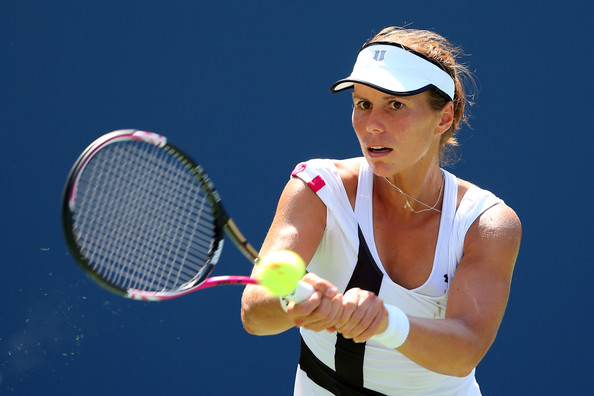“The Tour de France? No. Impossible to win without doping.”
When Lance Armstrong, in an exclusive interview with a French newspaper Le Monde, came
out and made this statement, it catapulted the drugs in sport debate that the industry seems
unable to shake. It seems just as one story dies down, another is ready to take its place –
Essendon continues to deal with the consequences of their scandal, surfing champion Kelly
Slater claims recreational drug use in his sport is ‘rampant’ and the NFL is currently plagued
with a wave of drug allegations and arrests. With all this, is it any wonder that a three year
study recently released found that children widely believed that drug use in sports was
normal? To be honest, I was hardly shocked when I read that the 312 children involved in
the study believed that a third of all elite athletes used performance enhancing drugs. What
did surprise me though was that the sister study involving 938 junior athletes aged 12-17
found that a third of the participants admitted to using ‘nutritional supplements’ with 4%
going far enough to admit performance enhancing drug use.
Now, I’m not ignorant to the power of sport – I know it is far more than just scoring goals or
running fast. You only need to ask kids who their role model is to know that sport stars are
heroes in their own right. And good for them, they definitely deserve the spotlight after all the
endurance, pressure and 5am trainings involved (most of us can’t even make our 8am
lectures). But now with Australians being dubbed the biggest recreational drug users in the
world by the 2012 UN World Drug Report, it is time to reassess the problem. It is common
knowledge that drugs can be not only dangerous to one’s health but it is also cheating,
potentially leading to consequences such as being banned, having your awards stripped and
being internationally disgraced. I’m sure no one goes into sports determined to take drugs so
why does it happen and why is it increasing even amongst young athletes?
The answer goes deeper than just wanting to win. Much like how most of us go through
primary school determined not to smoke, drink, do drugs or have sex (because boys have
cooties) but end up doing these things anyways, the answer may very well lie in social
pressure. At the end of the day, we want to conform; to be accepted and to fit into the
narrowing definition of ‘success’. This was reflected in the study mentioned above which also
found that while most young athletes don’t want to do drugs, a fair proportion thought they
might eventually need to in order to excel in their sport. When asked why they thought other
athletes took drugs, answers included a better chance of winning, improved physical
appearance, better performance to become famous, to recover faster, to get chicks and
because it’d be ‘heaps sick’. Indeed, pressure on young athletes is mounting with the
general belief being that by age 15-17, kids should be performing at an elite level if they
want a future in sport. In the same manner that kids studying to get into the Ivy League have been accused of taking Ritalin to get ahead, some young athletes may very well turn to drugs to secure their future. Now, the common attitude is – if the elite athletes are taking
drugs, why not me too?
Even as I write this piece, a World Cup game is blaring in the next room. And periodically, I
can hear screaming at the TV from my friends who I swear never before gave a damn about
soccer. But here they are, calling players they have never seen before ‘idiots’ and ‘the worst
players in the history of ever’. The pressure on athletes is often unimaginable; who could
forget the stabbing of Colombian soccer player Andrés Escobar by a fan for accidently
scoring an own goal during the 1994 World Cup? Of course, this is a worst case scenario but
the recent aftermath of the 7-1 lose by Brazil to Germany was in itself a fair indication of the
expectation often placed on athletes. If I were a young athlete, I’d certainly want to do
anything possible to avoid the kind of verbal abuse and disappointment that those poor
Brazilian players faced due to their loss.
When did succeeding become so paramount as to override potential ramifications for our
health and our moral compass? What ever happened to rules and playing a fair game?
Shouldn’t that be the primary focus of sport rather than a gold medal or a trophy? It may be
fiction but lately, the world of sport seems to be becoming increasingly like the Hunger
Games. The goal is to do whatever it takes to win; opponents and rules be damned so long
as the audience is entertained. If that is the case, I most certainly do not volunteer as tribute.
Succeeding should not be the be all and end all and yet that’s become all we can focus on in
society – it only takes a look at the different reactions to ‘Oh I study Medicine’ and ‘Oh I’m
not at university, just doing my music thing’ to notice the disparity. I understand that at a
certain age, responsibility and a stable future should kick in but I maintain that at age 12-17,
if you’re not the fastest runner or best player, drugs should not be the answer.
Sports can be inspiring, great for developing skills and comradery – uniting a country or even
the world as the Olympic Games do. But currently, I can’t help but be disappointed in the
state of sport. Let’s go back to the stories of Lawrence Lemieux, the sailor who gave up gold
at the 1988 Olympic Games to save his capsized competitors, as opposed to superstar
players getting stripped of their medals for cheating. Let’s take a look at the pressures we
place on young children who should be enjoying their childhood instead of using
performance enhancing drugs or sticking needles into themselves just to win. Lance
Armstrong may have won seven Tour de France races but it’s a little hard to say his name
now without cringing due to his admitted doping. His story is now remembered as a warning
rather than an inspiration. So at the end of the day, what do you want your story to be?


![[[MackHorton]]courtesy elitesports](https://lotswife.com.au/wp-content/uploads/2014/09/MackHortoncourtesy-elitesports.jpg)